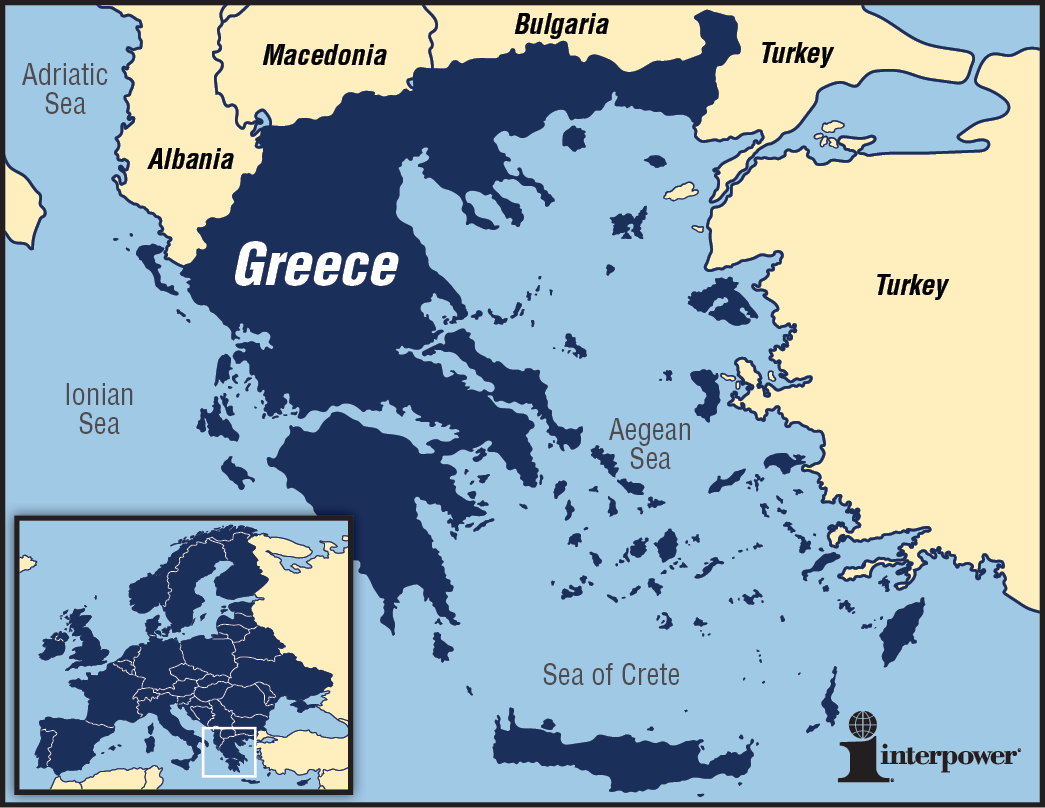Exporting to Greece

| GREECE | |
|---|---|
| Actual population* | Population world ranking |
| 10,775,557 | 81 |
| Actual GDP (PPP)* | GDP world ranking |
| $267.1 billion | 51 |
| Actual GDP (per capita)* | GDP (per capita) world ranking |
| $23,600 | 63 |
*See the end of this blog for definitions
Even though there may be challenges in the Greek market, there are also business opportunities available for companies wishing to export to this country. As a member of the European Union, it can also be a trade link to other regions.
The geographic location of Greece can be beneficial to reaching customers in the region. One suggested way to enter the market successfully is to find a knowledgeable, experienced local partner with an established business network. A market plan should be created that focuses on doing business in Greece and all business agreements need to be in compliance with EU and member state laws. To assist with starting a business, there are several websites to consult, including “Start Up Greece” (Greek Ministry for Development) and “Doing Business in Greece” (Invest in Greece Agency).
Knowledge of business customs is essential. Attending to business in person in the country is strongly recommended. Learn the customary business greeting, along with the importance of business cards and when to exchange gifts.
There are a variety of resources which can assist in learning more about market entry strategies, doing business in Greece, business customs, and import/export requirements. These include the United States Commercial Service and the United Kingdom Trade and Investment.
Located in Southern Europe, Greece joined the European Union in 1981. The EU is a Customs Union which consists of member countries who have formed a single region for customs purposes. Goods that have been imported legally can circulate throughout the EU with no further customs checks. To learn more about the customs regulations, among the sources to consult are the European Commission Export Helpdesk and European Commission Taxation and Customs Union. Conducting due diligence in accordance with all of the regulations is essential.
Some products may require safety testing and certification for this market. While not all products are required to have a CE mark, others do require one. When affixing the CE mark to a product, a manufacturer affirms that the product meets the necessary requirements and can be sold throughout the EU.
There are also EU regulations that need to be followed, so it’s important to know what is required in Greece. Among them are:
- REACH is the European regulation for Registration, Evaluation, Authorization, and Restriction of Chemicals. The European Commission works closely with ECHA (European Chemicals Agency) in the implementation of this regulation.
- RoHS stands for Restriction of Hazardous Substances. It restricts the use of certain hazardous materials found in electrical and electronic products.
- WEEE stands for Waste from Electrical and Electronic Equipment. WEEE requires the treatment, recovery, and recycling of electric and electronic equipment.
While Greek is the language spoken by the vast majority of the people in Greece, many in the business community speak English. It is suggested, however, to have product literature in Greek.
In Greece, the voltage used is 230V at 50Hz. The most frequently specified plug pattern is the Continental European plug.
Sources:
www.export.gov/greece
www.gov.uk
www.startupgreece.gov.gr
www.enterprisegreece.gov.gr
Sources for European Union:
www.ec.europa.eu
www.echa.europa.eu
www.rohsguide.com
www.exporthelp.europa.eu
www.europa.eu
www.export.gov/europeanunion
*Source: www.cia.gov/library/publications/the-world-factbook/index.html
Country comparison—Population: Population compares estimates from the US Bureau of Census based on statistics from population censuses, vital statistics, registration systems, or sample surveys pertaining to the recent past and on assumptions about future trends. (July 2014 est.)
Country comparison—GDP (Purchasing Power Parity): GDP (purchasing power parity [PPP]) compares the gross domestic product (GDP) or value of all final goods and services produced within a nation in a given year. A nation’s GDP at PPP exchange rates is the sum value of all goods and services produced in the country valued at prices prevailing in the United States. (2013 est.)
Country comparison—GDP – per capita (PPP): GDP – per capita (PPP) compares GDP on a purchasing parity basis divided by population as of 1 July for the same year. (2013 est.)






